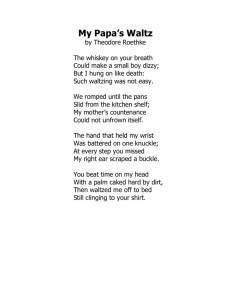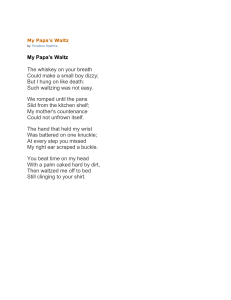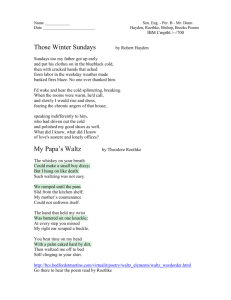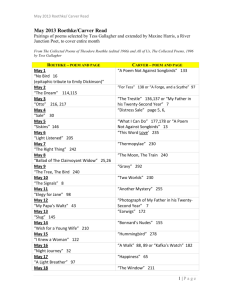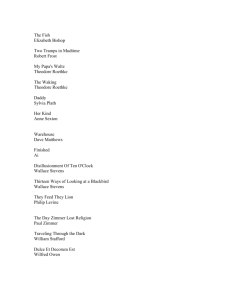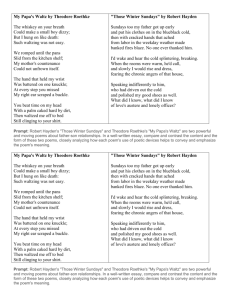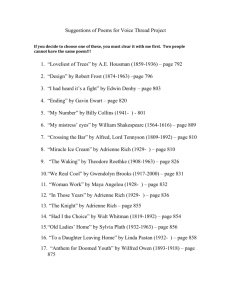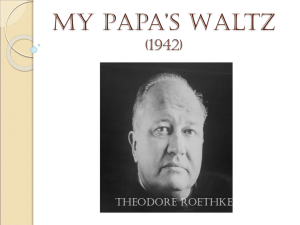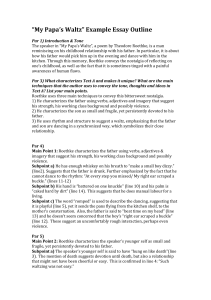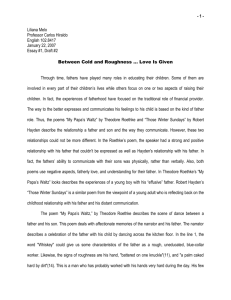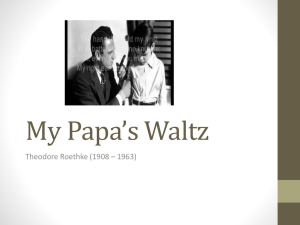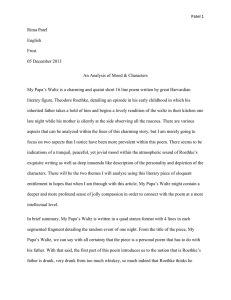Theodore Roethke
advertisement
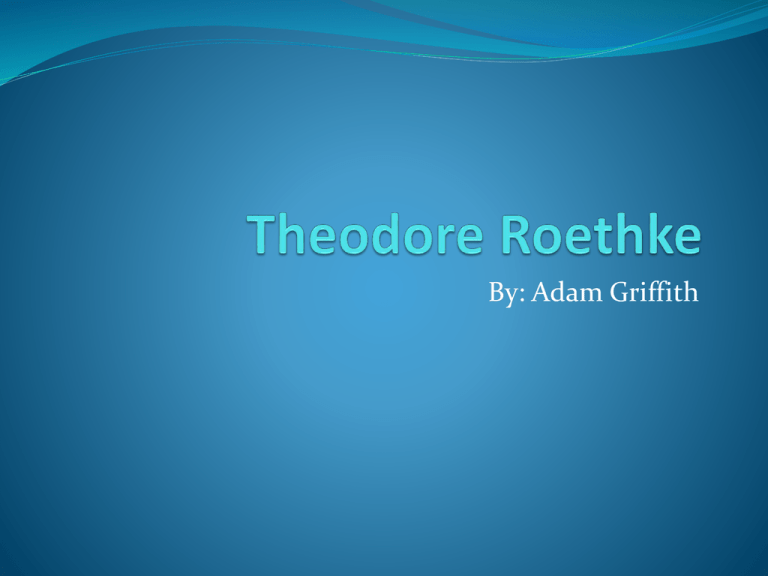
By: Adam Griffith Biography Son of Otto Roethke who owned a greenhouse Born May 25th 1908 in Saginaw, Michigan Died August 1st, 1963 in Bainbridge Island, Washington Father and Uncle both died in the year 1923 when he was 15, drove him into a depression Attended University of Michigan from 1925-1929 Biography continuded become an English professor at a variety of universities including Lafayette College, Pennsylvania State University, and Bennington College. The Great Depression and both World Wars helped drive him farther into his depression influenced by several poets including but not limited to Emerson, Thoreau, Whitman, Blake, Wordsworth, Yeats and Dylan Thomas Biography continued First book of poetry called Open House in 1941 Only had 6 other books published in his life time and 1 post humorously (The Far Field 1964) Poetry Analysis My Papa’s Waltz” by Theodore Roethke is about a father who comes home a little bit drunk and tipsy, and joyfully plays with his son creates the image of a son who loves his father very much and wants nothing more than to continue playing with him even though it is a little rough Poetry Analysis continued image of a dance up throughout the entire poem by writing it in iambic trimeter to be as close to a waltz as possible because a waltz is a three beat dance this type of play and roughhousing is not without consequence because he frequently alludes to the pain he feels and the small scrapes and bruises he receives for engaging in this playful activity with his fath Poetry Analysis continued Roethke includes the image of the mother in line seven. This shows that this waltz is not unobserved and that she is there to step in and stop it if it gets too out of hand and the boy could be seriously injured Criticism a man of great emotion and used poetry as an outlet for his feelings about his own personal past and the events of his life Elegy for Jane: Jay Parini feel that Roethke’s expressed grief is for the human condition of death and that we must all die while others such as Lynn Ross-Bryant, Roethke is simply expressing a deeply personal and emotional grief over the loss of his student. Criticism Epidermal Macabre: he examines himself and finds that he is unhappy and unsatisfied with his life the way he is living it Frederick Lenz says that Roethke is unhappy because he is caught between two worlds, ignorance and knowledge of a higher spiritual order Criticism In a Dark Time: Even the title expresses the depths of despair that he was in when he wrote it Roethke is saying that one only begins to really look at their own life with a critical lens when they are at the depths of despair Roethke’s confusion at what is going to happen, if he will be able to pull himself out of this despair or if this is it and he will forever be lost in a deep depression END
